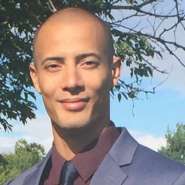A University of Southern California (USC) research institute is establishing the first public database for police officer firings and resignations through the creation of a national registry to track police conduct.
In late May, the USC Safe Communities Institute (SCI) announced a pilot roll-out of the Law Enforcement Work Inquiry System (LEWIS) Registry – named after the late Rep. John Lewis. The registry will be the “first comprehensive national catalog” of cops who have been terminated or resigned due to misconduct.
“A national police misconduct registry of abusive, violent and corrupt police officers is necessary to ensure transparency,” said Rep. Karen Bass, D-Calif, in a press release. “This will hold officers accountable to the people they are supposed to serve and protect, as well as prevent bad officers from leaving one department and being hired in another.”
The LEWIS Registry aims to hold cops and police departments accountable and increase public trust in law enforcement. It will document details of misconduct such as:
- Excessive force;
- Corruption;
- Domestic violence;
- Sexual assault;
- Physical assault;
- Harassment;
- Perjury;
- Hate group affiliation; or
- Falsifying a police report.
This information will come from public sources, including department statements, court records, police notices, news reports, and other open sources.
The LEWIS Registry will be piloted with an intention to launch an interactive beta version later in 2021. The public portal of the registry will be searchable and open to the public for community use, while the police department portal is intended to be used by departments as a tool to screen police officer applicants.
“I am a proud supporter of the LEWIS Registry, a comprehensive national database providing immediate access to officer applicant screening to identify officers previously fired for misconduct,” said former California Gov. Arnold Schwarzenegger, who also serves as chairman of the Schwarzenegger Institute for State and Global Policy at USC Price. “Communities must have the best-qualified individuals protecting and serving in these most vital positions of public trust.”
